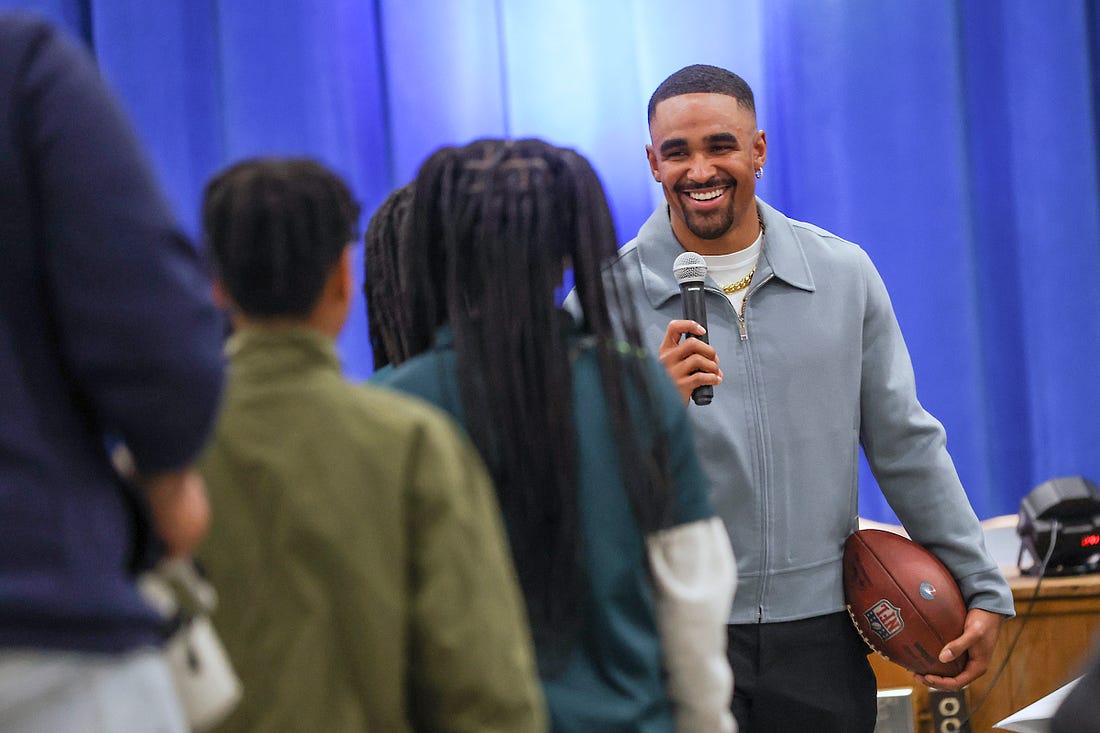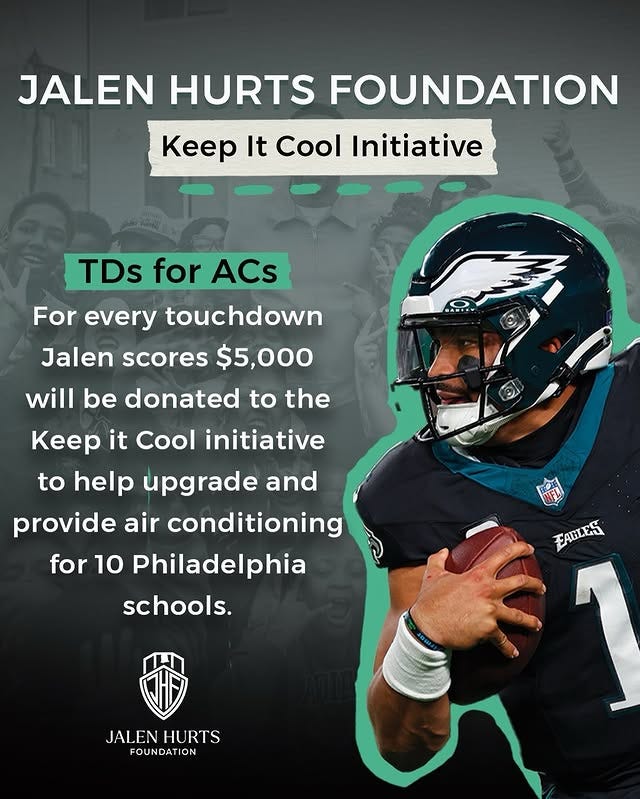|
 |
Hey team! For the last 10 days, I’ve been doing a lot of professional talking. First, I was at the Society of Environmental Journalists conference in Phoenix, Arizona, and then I attended Climate Week in Washington, D.C.
At both events, one of the major topics of discussion was how to cover climate change for people who don’t seek out climate news. My number one suggestion, as it’s always been, is to realize that any story can be a climate story if you try hard enough. If you want to engage non-climate readers, find the climate angle in the most viral news story of the week, and milk that for all it’s worth.
Anyway, that made me realize I hadn’t actually walked the talk in a while. So that’s what I’m doing today—at the risk of pissing off the entire Philadelphia sports media. Enjoy, and please subscribe if you can!
Everyone who reads this newsletter knows I’m a journalist who covers climate change. But I also have a separate identity: I’m a Philadelphia Eagles fan. (Go birds).
Rarely do these areas of my life cross paths. But this week, they did, in the form of a viral story about Eagles quarterback Jalen Hurts. See, I have a theory about why Hurts skipped Monday’s team meeting with President Donald Trump to celebrate the Eagles’ 2025 Super Bowl victory. The White House said it was because of “scheduling conflicts.”
But I think it has to do with Trump’s anti-climate change policies.
Hear me out. Yes, it’s true that Jalen Hurts has literally never talked about climate change before. In fact, Hurts has rarely talked about any politically sensitive issue.
Hurts is, however, fiercely dedicated to protecting Philadelphia kids—specifically, protecting them from extreme heat. In April of last year, Hurts announced that he would donate $200,000 to install 314 air conditioning units in several Philadelphia schools. He said he was inspired to do so after learning that more than 60 percent of Philadelphia schools lack central air conditioning—and dangerous heat is increasingly forcing Philadelphia schools to send kids home early.
In 2023, 74 Philadelphia schools had to close early because of inadequate cooling systems. In 2022, 118 schools were forced to close early, sending tens of thousands of kids home. "These conditions are unacceptable for our students," Hurts said. "We need to do more to ensure that every child has a safe place to learn."
After extreme heat once again forced 63 Philadelphia schools to close early in August 2024, Hurts stepped up his effort. Through his philanthropic group, the Jalen Hurts Foundation, he launched the Keep It Cool Initiative, and pledged another $200,000 to improve conditions in 10 more schools. The initiative also launched a sub-campaign called TDs for ACs, in which Hurts would donate $5,000 every time he scored a touchdown during the 2024-2025 season. Louisiana Hot Sauce partnered with the effort as well, donating another $100,000.
But even with all this philanthropy, Hurts has not been able to singularly solve the issue of too-hot Philadelphia classrooms—classrooms that just keep getting hotter due to heat-trapping pollution from fossil fuels. At the end of 2024, 57 Philly schools still lacked adequate cooling systems, according to reporting from Climate Central.
That’s because many of the city’s very-old school buildings don’t simply need more air conditioning units. According to Axios, “Many buildings lack the electrical capacity to upgrade the cooling systems, which costs between $1 million to $1.5 million to modernize.” In other words, Philadelphia schools need help installing more power—and it makes the most sense for these power systems to be renewable, because they don’t cost much money to maintain after they’ve been installed, and they don’t emit any pollutants or planet-warming gases into the atmosphere, thereby worsening the problem they’re trying to solve.
Because of this, Philadelphia school officials called on the federal government to step in. And perhaps surprisingly, they did. In 2022, Congress passed the Inflation Reduction Act (IRA), which among many other things, made it easier for schools to install renewable energy systems like solar arrays and geothermal heat pumps by offering cash reimbursements of up to 30 percent of project costs.
Then, in August 2024, to encourage more Philadelphia schools to take advantage of the IRA’s 30 percent reimbursement,


